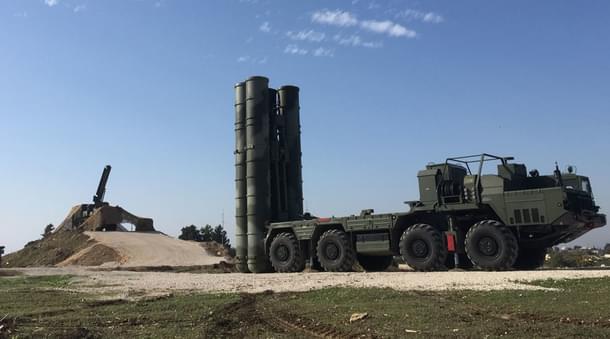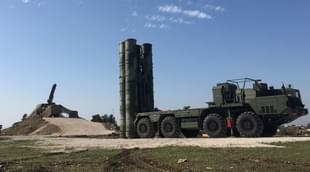Insta
US Sanctions Stop India From Making Arms Purchase Payments To Russia
Swarajya Staff
May 05, 2018, 10:13 AM | Updated 10:13 AM IST
Save & read from anywhere!
Bookmark stories for easy access on any device or the Swarajya app.


A legislation introduced by the United States, that imposes sanctions on Russian arms exporters, has delayed India's arms purchase payments to Russia, the Economic Times reports. Signed into law by President Donald Trump in August 2017, Countering America’s Adversaries Through Sanctions Act (CAATSA) imposes sanctions on Iran, North Korea, and Russia for a wide variety of transactions.
Thanks to CAATSA related sanctions, Indian banks such as the State Bank Of India (SBI) have been unable to carry out remittances to the Russian arms export company Rosoboronexport. According to reports, large payments are stuck and the Indian government is trying to find a way out of the situation.
The payments problem has cropped at a critical time for India. Projects involving the repair of nuclear-powered attack submarine INS Chakra and the all-important import of S-400 air defence systems may be affected if a way out is not found soon.
According to the report, payments worth $100 million have already been stopped, and overall trade of over $2 billion might be affected. Russia constitutes 63 per cent of foreign arms supply to India and is keen to resolve the issue. Reports say that the Prime Minister’s Office is now directly involved in attempts to find a solution with ideas such as a specialised defence payments bank are being considered. India might also seek a waiver from the US for its Russian arms purchases.
It is worth recollecting that Trump had indicated his dissatisfaction with CAATSA and had issued two separate statements after reluctantly signing the bill into law. He was not happy with the restrictions the legislation imposed on the US executive branch's authority in foreign policy affairs.
In his statement, he had said that his administration 'will give careful and respectful consideration to the preferences expressed by the Congress in these various provisions and will implement them in a manner consistent with the President's constitutional authority to conduct foreign relations.'
US Defence Secretary Jim Mattis had also appealed to the US Congress in late April to offer India a national security waiver for key purchases such as the S-400 air defence systems. The law will affect US arms exports because the US is bound to stop selling arms to countries making arms purchases from India.
"There is no national security waiver to what is referred to as the CAATSA Act, the specific act that says that, if another nation buys military equipment from Russia, then we will not sell them ours", Mattis had told lawmakers.
"So what we ask for is that the Senate and the House pass a national security waiver in the hand of the secretary of state -- I'm not asking for myself. Foreign policy is driven from Foggy Bottom. So, if he has the waiver authority and I can go to him and show it's in our best interest, then we get an internal management of this process, but it keeps us from being boxed in by the Russians,” he had said.
The bill had prompted a strong reaction from Russia, including President Vladimir Putin’s decision to drastically cut down US diplomatic presence in Moscow.





